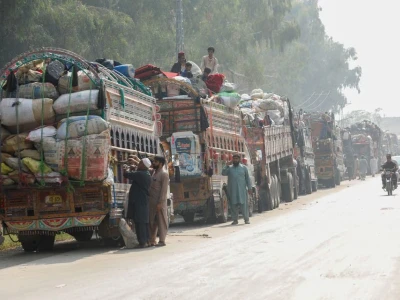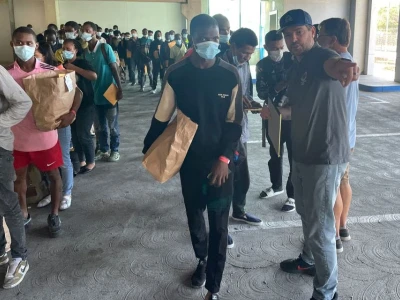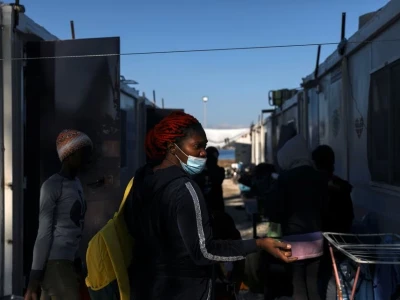
Armenians wait forlornly for relatives at border with Azerbaijan
Azerbaijan denies Armenian charges that its policies amount to genocide.
NEAR KORNIDZOR, Armenia, Sept 21 (Reuters) - One man was hoping to find his son, another was looking for his father.
In a long, cold vigil at Armenia's border with Azerbaijan on Thursday, a small group of Armenian men stood waiting for relatives they hoped would find a way home after the latest violent twist in decades of conflict between the two countries.
Azerbaijan this week launched a lightning offensive to retake Nagorno-Karabakh, a breakaway region where ethnic Armenians had enjoyed de facto independence since a war in the early 1990s. Within 24 hours, the Karabakh Armenians were forced to agree to surrender and disarm.
The men at the hillside border checkpoint were waiting in the hope of greeting relatives escaping from Karabakh.
Armen Petrosyan, a 47-year-old tractor driver who lived in Karabakh until his village was lost to Azerbaijan in a 2020 war, had come from the nearby town of Sisian in the hope of finding his 20-year-old eldest son.
Petrosyan declined to name him, or say whether he had fought in Karabakh's military, for fear of endangering the young man.
A man who gave his name as Hayk said he had spent several days on the border hoping to find his father who had been in Karabakh for work and was trapped there when Azerbaijan imposed an effective blockade of the territory last December.
In three hours spent at the checkpoint near the Armenian village of Kornidzor, Reuters reporters did not witness any reunions. Not a single civilian crossed over from the Azerbaijani side.
DISTRUST ON BOTH SIDES
Some of the men were dressed in military-style fatigues and carried binoculars, through which they looked across the valley over territory controlled by Armenia until 2020 but now decisively abandoned to Azerbaijan.
They spent the time drinking coffee, arguing with Armenian border guards who refused to allow them to go any further, and voicing fears for the fate of their relatives.
"The world has closed its eyes on genocide," said Petrosyan. "They are destroying all our history, our Christian heritage. Everything that there is."
Azerbaijan denies Armenian charges that its policies amount to genocide or ethnic cleansing in Karabakh, and says it wants a smooth process of "reintegration".
But distrust runs high on both sides, given the turbulent history between them and the tens of thousands killed in the past 35 years.
Several of the waiting men brought up the topic of the mass killings of Armenians under the Ottoman Empire during World War One, which Armenia mourns as a genocide.
Vachik, a 32-year-old car mechanic, was hoping to find relatives of his wife, but said he was losing hope that Azerbaijan would let the civilian population leave Karabakh.
"They will torture them, hold them there," he said.
In the nearby town of Goris, a woman who gave her name as Oksana said she had been trapped outside her native Karabakh since June because of the Azerbaijani blockade.
With her voice raised and cracking with emotion, she said her children were still there, and she feared for their lives.
"If even one person gets out alive, I will be glad," she said.




